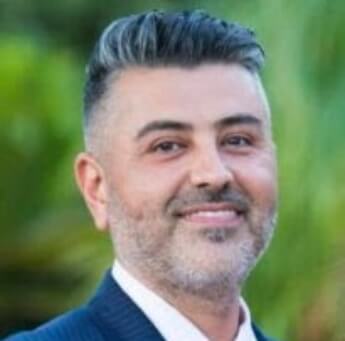Steve Farzam is a driven and dedicated hospitality professional with over 10 years of experience. He also has experience in the fields of emergency medicine, law, and disaster relief. Steve has been a part of the hospitality business from the time he was young as his family owned and operated a motel in the Seattle area. Now, Steve serves as the Chief Operating Officer of Shore Hotel in Santa Monica. Before stepping into the professional world, Steve earned his Bachelor’s degree in Sociology from California State University Northridge. After graduating he went on to earn his paramedic certification at Southwestern College. With both education experiences Steve stepped into a job as a helicopter flight paramedic. He enjoyed this profession but decided to return to his roots and enter hospitality management.

Steve Farzam’s role as COO of Shore Hotel in Santa Monica has always been a rewarding one. He oversaw the entire creation of the hotel, including its LEE Gold Design, construction, and grand opening. Past the hotel’s creation, Steve is now in charge of all day-to-day operations. His commitment is to make sure that the hotel has the smallest carbon footprint possible. While doing this he wants the hotel to have a positive impact on the local community, staff, and guests. Steve’s implementation of multiple green initiatives has earned the hotel multiple environmental and green stewardship awards. The hotel has earned other awards as well including #1 on Trip Advisors best hotels in Santa Monica.
The Shore Hotel team is dedicated to giving each guest at the hotel exceptional service. To make sure that operations are up to his standards, Steve Farzam will stay at the hotel from time to time. He also enjoys filling in for different management positions so he can gain first-hand knowledge of every facet of the organization.
During his free time you can usually find Steve spending time with his family or traveling. To learn more about Steve Farzam, you can connect with him on TravelMassive or LinkedIn.
How COVID-19 has Changed the Hospitality Industry
One of the biggest challenges for every industry in a post-coronavirus world is to regain the confidence of former consumers. During this long lockdown period, people have grown accustomed to being extremely careful about where they go, who they interact with, and what they touch. Hotels are one sector where it may be particularly challenging to rebuild consumer confidence.
Hotel rooms are places that need to feel private for the people who use them. However, for hotels to be profitable, they need to turn those rooms over again and again. The pandemic has made people realize that in a hotel, they’re using the same mattress, TV remote, and phone as dozens of other individuals. In the wake of COVID-19, people are increasingly worried about cleanliness. The industry has adapted and is eager to communicate the changes they’ve made to consumers.
Throughout the crisis, chains like Westin and Hilton have sent out emails to their most loyal customers, keeping them informed of changes. They outline additional policies and procedures adopted by these chains, including the use of PPE and new cleaning methods. Disinfecting, not just sanitizing, surfaces are often a part of these plans.
In addition to actions taken by specific chains, industry associations have established guidelines for member organizations to follow. The US Travel Association and the American Hotel & Lodging Association are two examples. Some industry observers expect that soon, a new certification will be available in the hospitality sector. In fact, clean certifications have already become available in some countries, like Singapore and Malaysia.
Singapore’s new SG Clean certification is awarded by the tourism board. To achieve this distinction, hotels need to have a leader dedicated to hygiene and sanitation. The idea is that there aren’t just guidelines for better cleaning. There’s actually a structure in place to support them, including a responsible manager. Malaysia has a similar program, known as Clean & Safe Malaysia.
The financial players in the hospitality industry would love to see a similar program in the US. The biggest questions now are who and how. Will business associations regulate themselves? Or will local and state governments want to be in charge? Finally, how will the program be rolled out? All of this remains to be seen.
